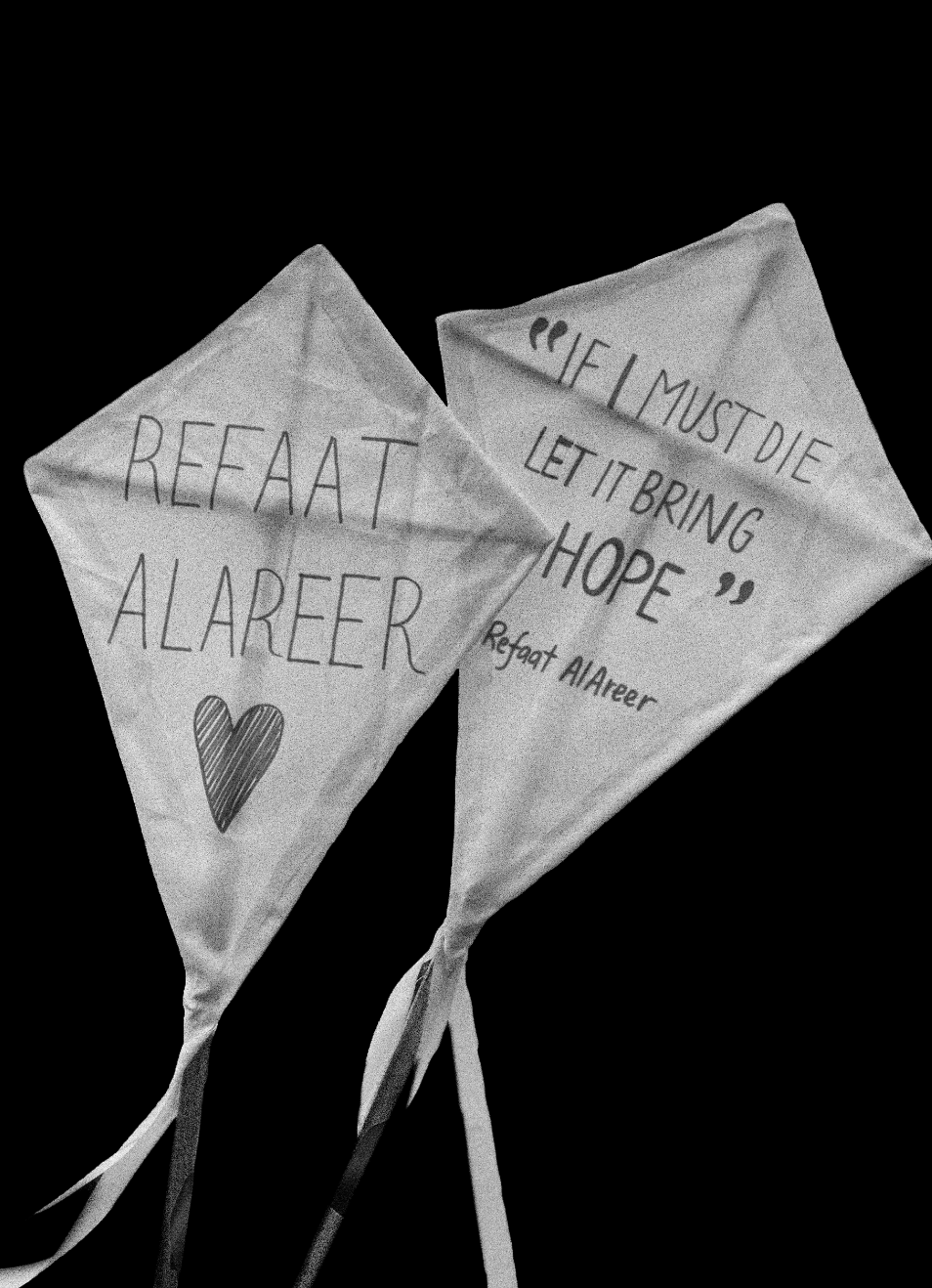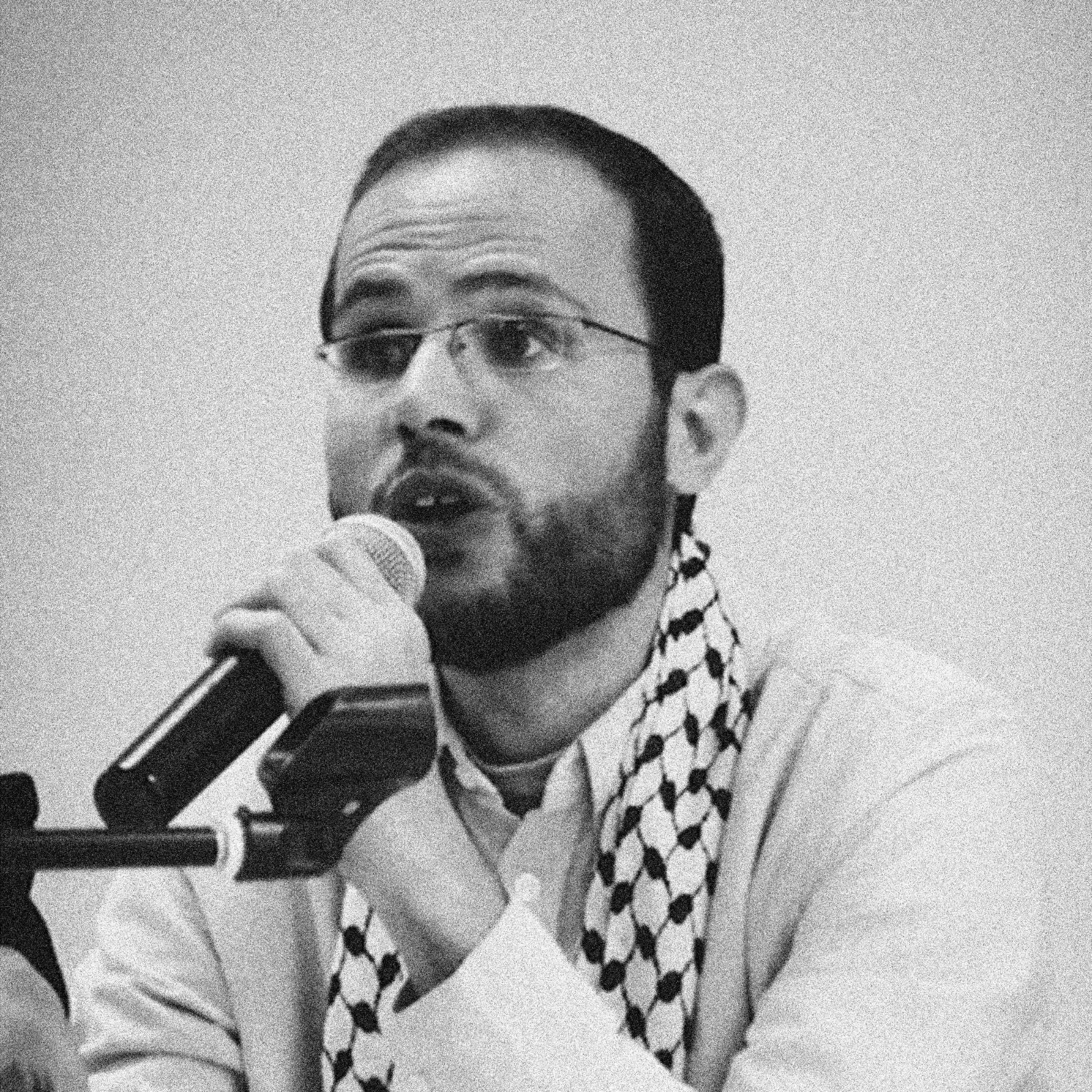In the preface to his edited collection of short stories, Gaza Writes Back: Stories from Young Writers in Gaza, Palestine, our professor Refaat Alareer, (or Mr. Refaat, as most of us called him) draws an image of a falling rocket with his words. The tip of the rocket, the charge or trigger, says, “we live, we live, we do.”
Refaat found his calling in storytelling. He sought the universal power that all native peoples have in connecting with the land through stories. Quoting an Indigenous elder in North America confronting colonizers, “If this is your land, tell me your stories,” he made the case for fighting back with our stories, our grandparents’ stories.
After Operation Cast Lead, the 23-day attack on Gaza that claimed the lives of 1,500 Palestinians, Refaat began teaching Short Story and Creative Writing classes at the Islamic University of Gaza — which has since been destroyed by the Zionist entity. His curriculum touched on the work of writers the world over, from Ernest Hemingway, Virginia Woolf, Anton Chekhov, Luigi Pirandello, and Emily Dickinson to Palestinian writers like Ghassan Kanafani and Susan Abulhawa.
For one of his assignments, he challenged his students to write a short story and submit it as an entry to an anthology. Out of hundreds of submissions came 23 stories by 15 young writers in Gaza, including us and Refaat himself. He joked that anyone younger than him would be considered young. In 2014, Refaat edited them all into the collection Gaza Writes Back, published by Just World Books. He bragged that 13 of the 15 writers were women, and that Palestinian women could not only be writers, they could also be freedom fighters, doctors, engineers, and educators — not a radical notion among women in Gaza. Many of Refaat’s female students saw him as an ally in a conservative society.
In 2014, we were lucky enough to accompany Refaat for a month-long book tour across seven U.S. states and 10 cities. Refaat was doing his PhD in Malaysia after overcoming myriad hurdles to exit the Gaza Strip, so he was able to travel to the United States (an opportunity he was later denied when he was invited to speak at the Palestine Writes festival in 2023).
Traveling alongside him from the East to the West Coast, Refaat carried himself with the same humility, the same empathy that we saw in his classroom. He was our big brother and our friend. He was excited by the different people, cities, and communities who opened their doors, hearts, and minds to listen to us.
A young man in Atlanta came up to Refaat and told him that after serving in the Israeli military, he left Israel because of its treatment of the Palestinian people. Another young man in Seattle told Refaat that he would confront his father about Zionism because, “for my entire life, I was told a different story.”
Speaking with children was second nature to Refaat. A five-year old Jewish girl named Viola, whose parents became good friends with Refaat over the following years, told him about her newfound interest in optical illusions. He tells us later, in his writings, how he wished his daughter, Shaymaa, would obsess over such child-appropriate interests the way Viola did. He wished Shaymaa could have met Viola, without restrictions or an oppressive occupation that controls every aspect of her life. Shaymaa was killed in April 2024 along with her husband, Mohammed, and newborn baby, Abd Al-Rahman. Refaat never got to meet his grandson.

Shakespeare was Refaat’s academic and creative passion. During our tour in the U.S., we visited the Folger Shakespeare Library in Washington D.C., which had been celebrating Shakespeare’s 400th birthday. Refaat placed the Palestinian keffiyeh around a portrait of Shakespeare and made sure to take a photo. His love for Shakespeare was unmatched; one of Refaat’s students in Gaza joked that he kept Hamlet under his pillow when he went to sleep. Refaat would smile when someone told the joke.
Refaat’s martyrdom has left an enormous hole in our collective hearts and minds. He was there whenever we needed a friend, and whenever we needed advice. When we thought our work wasn’t worth anyone’s attention, he paid attention. When the world drowned out our voices, he uplifted them.
December 6, 2023 was the date that someone from behind a screen in an office of the Israeli military decided to send a rocket to Refaat’s sister’s house where he was staying. That rocket exploded, and it put an end to the life of Refaat Alareer, a poet, an intellectual, and a father of six from al-Shujaiyya, Gaza. Refaat is no longer living. No matter how much we refuse to believe it. He’s not.
But what Refaat has done in his lifetime will outlive the person who pushed the button, and the rocket, and Israel. His words will keep fighting back.


